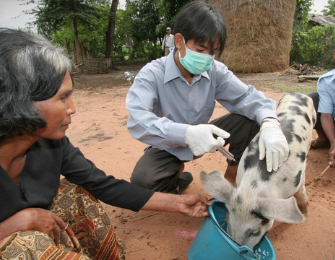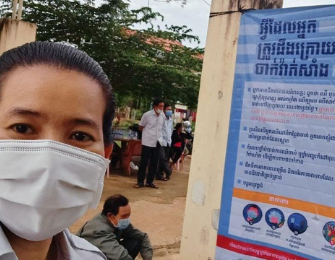One of the Centre’s core principles is that health security cannot be achieved without a One Health approach. Approximately 75% of newly emerging infectious diseases are zoonoses (diseases that can transmit from animals to humans) that result from various anthropogenic, genetic, ecologic, socioeconomic and climatic drivers.
What is One Health?
One Health is an approach that recognises that the health of people, animals and the environment are interconnected. Across the Indo-Pacific, animal production systems are changing rapidly whilst animal health systems and their capacities to diagnose, treat and control diseases are generally weak and under-resourced. Ecological systems are also under strain from changing land use patterns and climatic effects. These factors pose major threats to human health.
The Research for One Health Systems Strengthening Program is a group of research projects co-funded with the Australian Centre for International Agricultural Research (ACIAR) addressing zoonoses, antimicrobial resistance and systems strengthening within the Asia Pacific.
The projects being funded are outlined below:
- Supporting Fijian health and agricultural authorities implement the National Antimicrobial Resistance Action Plan
- A One Health approach to establish surveillance strategies for Japanese encephalitis and zoonotic arboviruses in Papua New Guinea (ZAPPA)
- Zoonotic Malaria in Indonesia
- Developing and testing processes and tools to generate connected and live health security knowledge in Cambodia
- Incentives for early declaration and effective prevention of Avian Influenza in the Mekong
- Drug sensitive and resistant tuberculosis and zoonotic infections as causes of lymphadenitis in 2 provinces in Papua New Guinea (EZARET)
- Evaluating zoonotic malaria transmission and agricultural and forestry land use in Indonesia (ZOOMAL)
- Collaboration on One Health Economic Research for Systems (COHERES)
- Enhancing the management of antimicrobial resistance in Fiji (EMAR)




